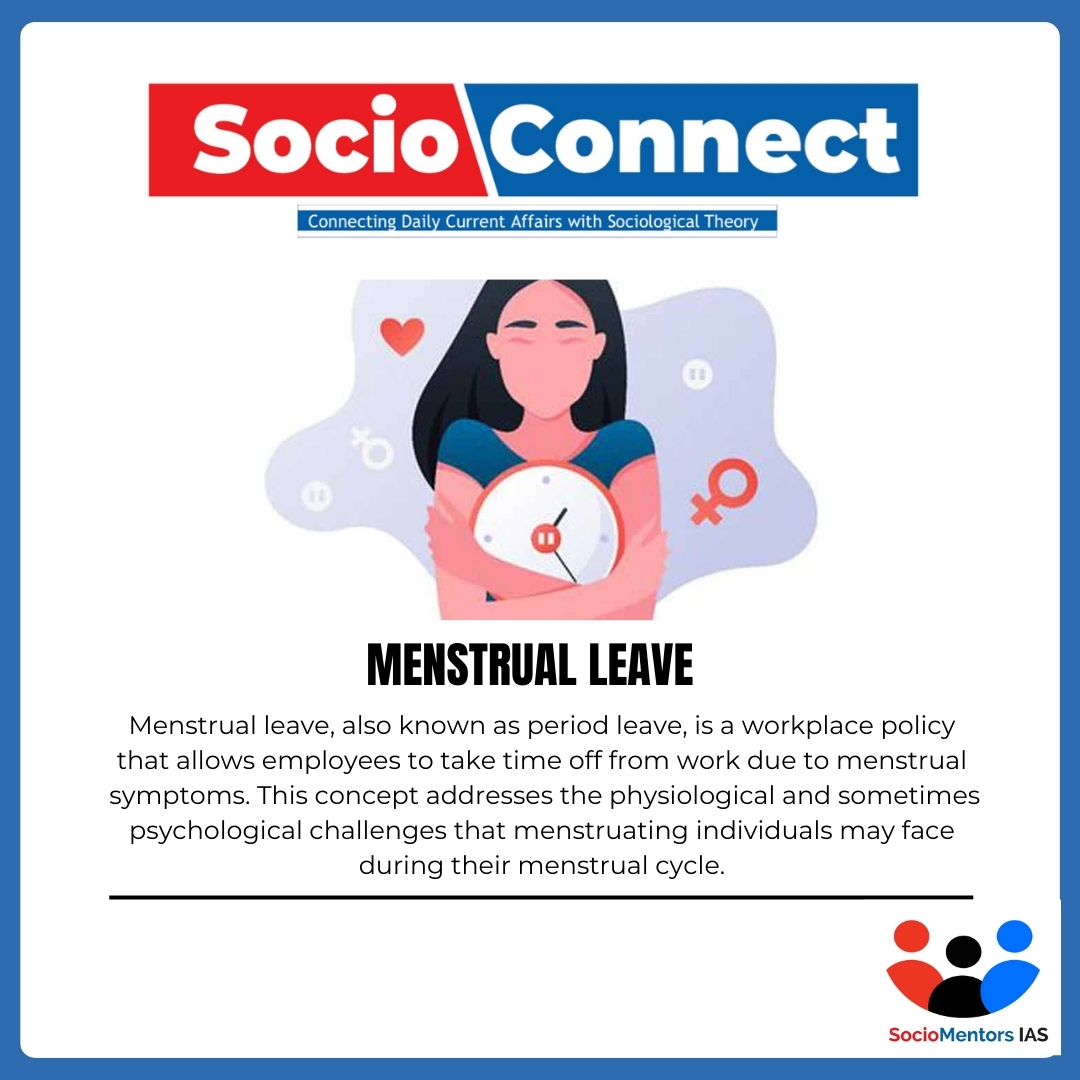Menstrual Leave – Sociological Perspective
July 10, 2024
Menstrual leave or period leave refers to all policies that allow employees or students to take time off when they are experiencing menstrual pain or discomfort. At the workplace, it refers to policies that allow for both paid or unpaid leave or time for rest. In India, there is no legislative provision for menstrual leave. Some companies in India have introduced menstrual leave policies, including Zomato,which announced a 10-day paid period leave per year in 2020. Bihar and Kerala are the only Indian states that have introduced menstrual leave policies for women.
Perspectives
- From a feminist perspective, this policy would help women come out of the shackles of patriarchal milieu in workplaces and the prevalence of both subtle and blatant gender discrimination in arenas of work. It would help to create an egalitarian work environment for women.
- From a symbolic Interactionist perspective, implementation of policies like this would result in the removal of taboo related to menstruation, (stemming from the idea of purity and pollution) by constant discourse and interactions.
- From an Indological perspective, certain religious and cultural beliefs consider menstruating women as impure and that might hinder their representation or participation in any sort of activities. This would result in their exclusion from work related matters.
- From a Marxist perspective, this policy can be said to favour capitalists as their means of maximizing profit by utilizing labour productivity in the best way possible. It was estimated that employees lost around 8.9 days’ worth of productivity every year due to menstrual- cycle related problems.
- From a political perspective, such a policy would come across as an affirmative action to induce inclusivity in policy making, by accommodating women’s rights too.
- From a legal/constitutional point of view, legal recognition of menstrual leave would uphold womens’ fundamental rights of equality(Article 14), non discrimination(Article 15) and right to life with dignity(Article 21).
- From a functionalist perspective, a national policy of menstrual leave would help in integrating the practice throughout the nation and thus establish a generalized value in the society pertaining to women rights.
- The social learning theory suggests that people learn new behaviors, values, and attitudes through observation, imitation, and modeling of others. In the context of menstrual leave policy, states like Bihar and Kerala have already put forth the same. This would probably result in the implementation of such a policy by other states and private institutions in India
Sociological Analysis
- A paid menstrual leave can help to enhance the economic capital (Pierre Bourdieu) of women in the workforce and thus pave the way for their social mobility.
- More than just the aspect of taking leave from work during menstruation, the demand for menstrual leave policies is to create a humane working condition for women in any sort of workplace.
- On the other hand,
- Menstrual leave and associated absenteeism from work can result in a lackadaisical hiring approach against women. This can further the gender gap in the employment sector.
- This can further the misogynist attitude prevalent in the society, especially when women are treated as subordinates to men and are expected mostly to restrict their participation in household chores alone.
- Institutionalizing menstrual leave can disincentive many employees from actively involving women in their work field and in important decision making processes and hence might result in the alienation of women from the benefits and recognition of their efforts.
Menstrual leave – UPSC Sociology Optional
Practice questions
Socio-Discourse*
- Does menstrual leave policy lead to an increased participation of women in informal labour sector? Analyze.
- Discuss how menstrual leave policiy can help women overcome the barrier of glass ceiling.



